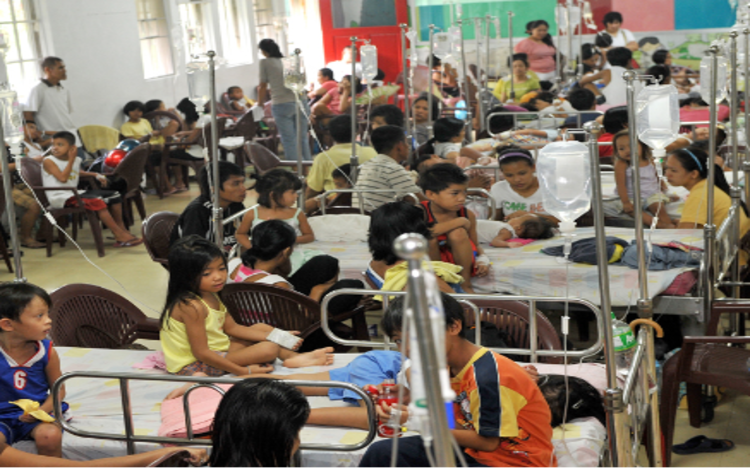Dengue cases in Central Visayas have surged dramatically, rising by approximately 95 percent in the first five months of 2024 compared to the same period last year. This alarming increase was confirmed by Dr. Ronald Jarvic Buscato, the regional program manager of the Department of Health’s (DOH 7) Communicable Diseases Section, on Monday, June 3, 2024.

According to the DOH Dengue Surveillance Report, over 6,200 cases of dengue fever and 14 associated deaths were documented from January 1 to May 20, 2024. This marks a significant increase from the previous year’s figures for the same timeframe.
Dengue fever is impacting a wide age range, from as young as two months old to as old as 98 years old, with the median age being 10 years old. “Bisan kinsa pwede magka-dengue. Usahay mahimong misconception nga healthy sila kay dili na magka-dengue,” Dr. Buscato emphasized, debunking the myth that only unhealthy individuals contract dengue. (Anyone can get dengue. Sometimes it becomes a misconception that if a person is healthy, he or she won’t get dengue.)
The province of Bohol has reported the highest number of cases, with around 2,000 individuals affected. Cebu follows, along with Negros Oriental and the tri-cities of Cebu, Lapu-Lapu, and Mandaue. Dr. Buscato highlighted that these figures might continue to rise with the onset of the wet season, which typically exacerbates mosquito breeding conditions.
To combat the spread of dengue, Dr. Buscato urged local government units (LGUs) and rural health units to implement proactive measures. These include conducting massive clean-up drives and eliminating potential mosquito breeding sites. Such preventive actions are crucial to controlling the dengue fever spread and preventing severe outbreaks.
The DOH has also promoted its 5S Strategy to mitigate dengue outbreaks. This strategy encourages the public to:
- Search and Destroy Breeding Sites: Regularly eliminate stagnant water where mosquitoes breed.
- Seek Early Consultation: Consult healthcare providers at the first signs of dengue symptoms.
- Self-Protective Measures: Use mosquito repellents and wear protective clothing.
- Say Yes to Fogging: Participate in fogging activities when dengue cases rise to kill adult mosquitoes.
- Sustain Hydration: Ensure adequate fluid intake, especially for those infected, to prevent severe complications.
The rise in dengue cases serves as a stark reminder of the importance of community vigilance and proactive health measures. The DOH continues to advocate for comprehensive and sustained efforts to prevent dengue, urging everyone to contribute to controlling this public health threat.
